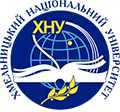
Deadline for abstracts: February 29, 2022
Socio-economic approaches to literary translation
Prof. Susan Pickford, Faculty of Translation and Interpreting, University of Geneva
Dr. Olivia Guillon, Department of Economics and Management, Université Sorbonne Paris Nord
13 June 2022
On September 10, 2021, the prize-winning American literary translator Jennifer Croft wrote an article in the Guardian entitled “Why translators should be named on book covers”. She simultaneously launched a Twitter campaign to persuade publishers to feature translators on the covers of their books. At the time of writing, the campaign’s open letter has received over 2,570 signatures on the Society of Authors website, reflecting a genuine interest among translators in both collective action and their own recognition as content creators. Pan Macmillan was the first major publisher to declare that it would routinely give translators cover credit as a result of Croft’s campaign.
Ironically, some weeks into her campaign, Croft shared on Twitter a work request she had received from a major publisher. Croft’s unnamed correspondent apologised for not offering a translation budget, adding it would be “amazing” if she would consider working “free of charge”. Croft’s denunciation of the expectation of unpaid labour in the literary translation sector garnered nearly 300 retweets and over 4,700 likes and prompted numerous responses, unanimous in their support of her position and comparing the position of literary translators as economic actors with a diverse range of professions ranging from neurosurgery, law, and medicine to bakery and plumbing.1
Croft’s article in the Guardian equating literary translators with authors placed the former firmly within the exceptional economy of the arts and creative industries, in which unpaid labour is widely recognised as endemic (Brook 2020). This model of economic disinterestedness also clearly shapes Croft’s unnamed correspondent’s view of literary translation practice. Yet Croft’s later tweet and its responses seemed, on the contrary, to suggest that literary translation was more akin to other economic sectors, waged or fee-charging, in which practitioners not only expect to be paid as a matter of course, but even in some cases receive hefty performance-related bonuses or measure their billable output down to the minute. The latter stance is more commensurate with recent calls by leading pragmatic translators such as Chris Durban, Judy Jenner and Michael Schubert to equate translation with a high-end professional consultancy service by shifting from a word-based billing model to hourly or lump-sum payments.2
Croft’s article and tweet hint at the complex status of literary translation as a creative, economic and professional practice, at the crossroads between creative writing and the LSP sector. Yet this threefold complexity has been largely overlooked to date by scholarship, even within the subfield of Translator Studies (Chesterman 2009). While excellent work has focused on literary translator self-identity from a sociological angle (Sela-Sheffy and Schlesinger 2011), the economic angle has been under-researched. Innovative interdisciplinary approaches under the broad economics umbrella such as ergonomics (Ehrensberger-Dow and Hunziker-Heeb 2016) and workplace studies (Risku, Rogl and Milosevic 2019), have been applied to non-literary translation, but not to any great extent to literary translation. Scholars such as Waltraud Kolb (2019) and Claudine Borg (2017) have applied process-driven workplace research methods in the subfield of Literary Translation Studies. Yet such work has tended to focus on literary translators as isolated actors working on standalone projects, relatively detached from their position as economic stakeholders within the wider publishing sector, worth a global $92.68 billion in 2021. Studies focusing on the socioeconomic aspects of literary translation have been rare: notable exceptions include Ginsburgh, Weber and Weyers (2011) and Mirsafian, Pirnajmuddin and Nejadansari (2021).
The aim of this conference is to explore the literary translation sector and literary translator careers from a socioeconomic angle. The questions we seek to address include, but are not restricted to, the following:
- How can time and motion and workflow studies shed light on the working practices of literary translators?
- To what extent do literary translators share the characteristics of the artistic labour market or the language service provision (LSP) sector?
- To what extent does information asymmetry impact the literary translation labour market?
- How should professional status be defined for literary translators?
- To what extent do national economic characteristics such as tax regimes define the working experiences of literary translators?
- What are the factors governing remuneration in the literary translation market?
- How is value determined and / or generated in the literary translation market?
- To what extent are emerging translation technologies liable to impact literary translation workflow?
The conference will be held online on 13 June 2022 . The time zone is Central European Standard Time (GMT+1). Contributions are welcomed in French and English, from academics and practitioners alike. Please submit a proposal of between 200 and 400 words with a brief bio-bibliography to susan.pickford@unige.ch and olivia.guillon@univ-paris13.fr by 28 February 2022.
Contributors will further be invited to submit their work for a journal special issue in 2022-2023.
Bibliography
Borg, Claudine (2017), A literary translation in the making: an in-depth investigation into the process of a literary translation from French into Maltese, unpublished PhD thesis, Aston University.
Brook, Orian (2020), “‘There’s No Way That You Get Paid to Do the Arts’: Unpaid Labour Across the Cultural and Creative Life Course”, Sociological Research Online 25(1), DOI:10.1177/1360780419895291
Chesterman, Andrew (2009), “The name and nature of translator studies”, HERMES – Journal of Language and Communication in Business, 22(42), 13–22.
Ehrensberger-Dow, Maureen and Andrea Hunziker-Heeb (2016), “Investigating the ergonomics of a technologized translation workplace”, in Ricardo Muñoz Martín (ed), Reembedding Translation Process Research, Amsterdam, John Benjamins.
Ginsburgh, Victor, Shlomo Weber and Sheila Weyers (2011), “Economics of Literary Translation. A Simple Theory and Evidence”, http://www.feem.it/Feem/Pub/Publications/WPapers/default.htm
Kolb, Waltraud (2019) “‘It was on my mind all day’. Literary translators working from home – some implications of workplace dynamics”, in Risku, Hanna, Regina Rogl and Jelena Milosevic, eds (2019), Translation Practice in the Field: Current research on socio-cognitive processes, Amsterdam, John Benjamins, 25-41.
Mirsafian, Leila, Hossein Pirnajmuddin and Dariush Nejadansari (2021), “Estimating literary translators’ earnings penalty. A cultural economics approach to translator studies”, Target 33.3, 436-463.
Risku, Hanna, Regina Rogl and Jelena Milosevic, eds (2019), Translation Practice in the Field: Current research on socio-cognitive processes, Amsterdam, John Benjamins.
Sela-Sheffy, Rakefet and Miriam Schlesinger, eds (2011), Identity and Status in the Translation Professions, Amsterdam, John Benjamins.


